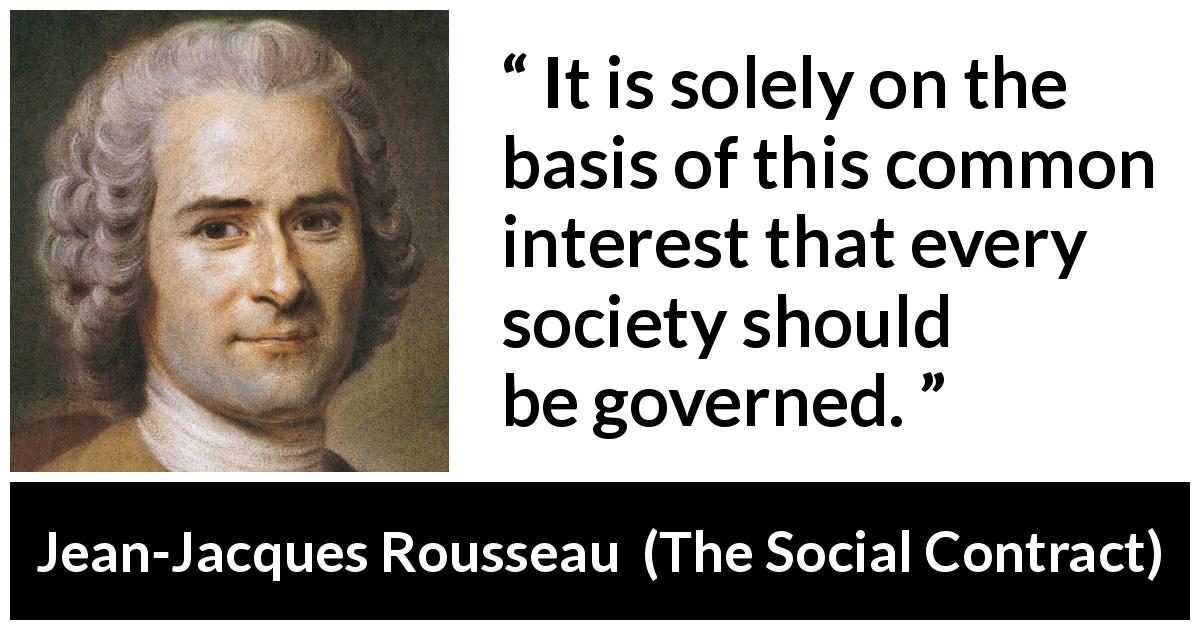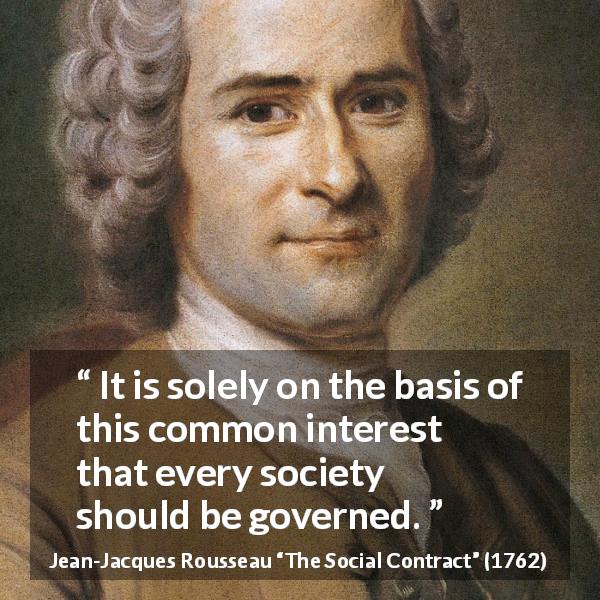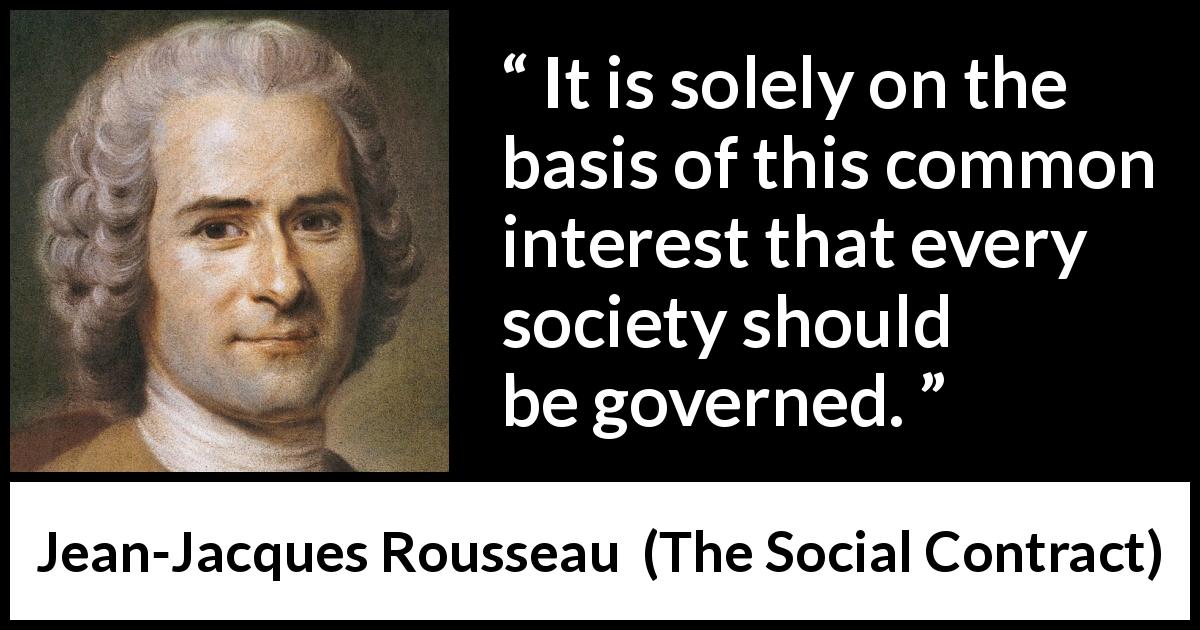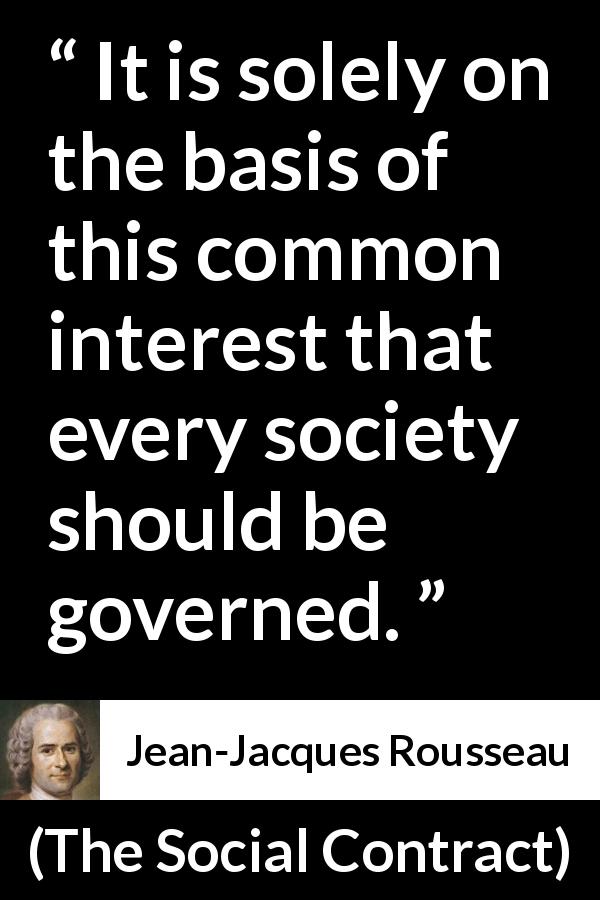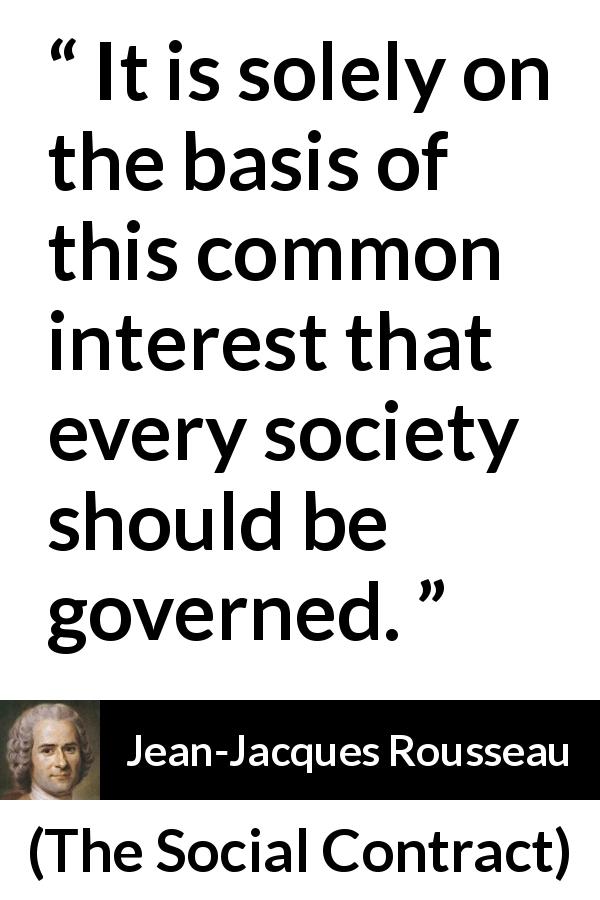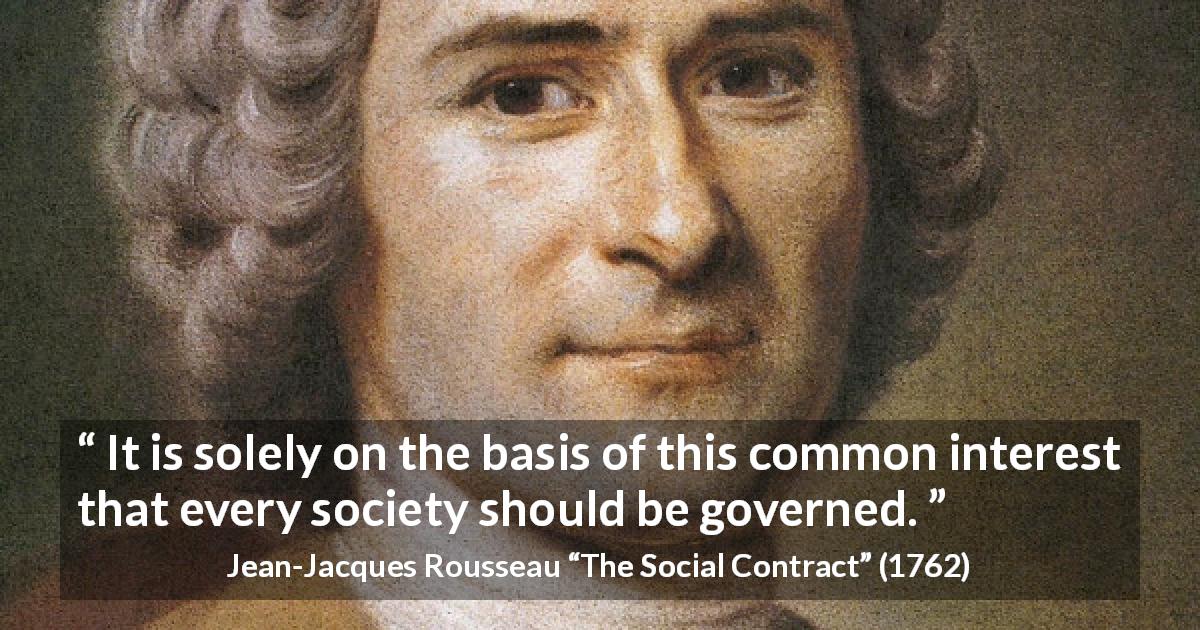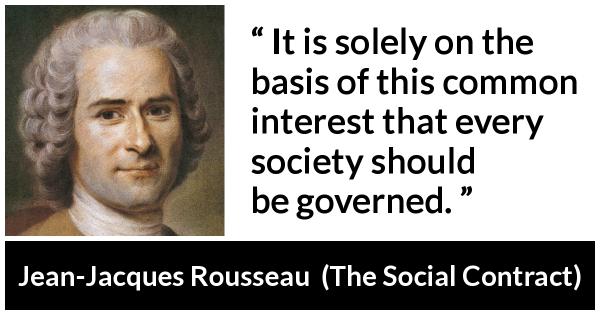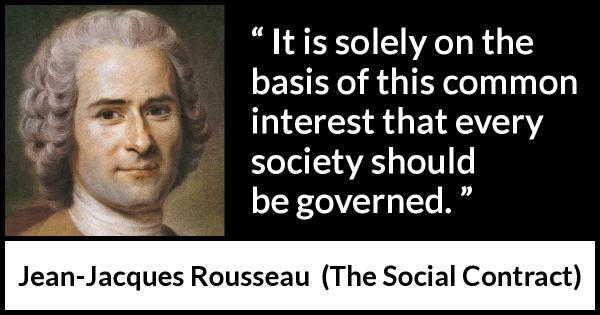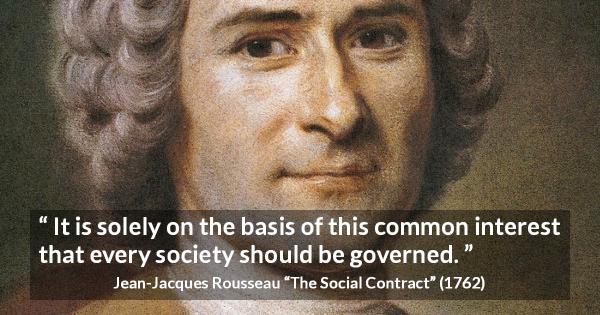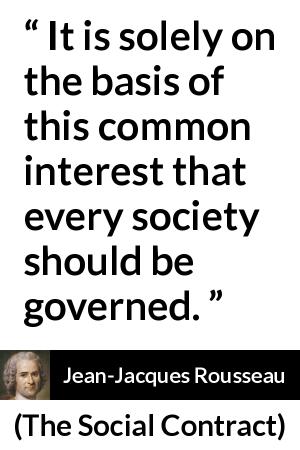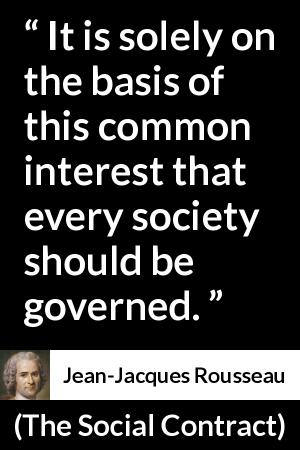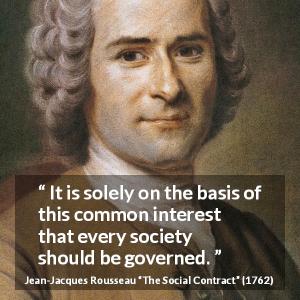“ It is solely on the basis of this common interest that every society should be governed. ”
Jean-Jacques Rousseau, The Social Contract (1762). copy citation
| Author | Jean-Jacques Rousseau |
|---|---|
| Source | The Social Contract |
| Topic | interest government community |
| Date | 1762 |
| Language | English |
| Reference | Of the Social Contract, or Principles of Political Law, Book II |
| Note | Translated by George Douglas Howard Cole |
| Weblink | https://en.wikisource.org/wiki/The_Social_Contract/Book_II |
Context
“THE first and most important deduction from the principles we have so far laid down is that the general will alone can direct the State according to the object for which it was instituted, i.e., the common good: for if the clashing of particular interests made the establishment of societies necessary, the agreement of these very interests made it possible. The common element in these different interests is what forms the social tie; and, were there no point of agreement between them all, no society could exist. It is solely on the basis of this common interest that every society should be governed.
I hold then that Sovereignty, being nothing less than the exercise of the general will, can never be alienated, and that the Sovereign, who is no less than a collective being, cannot be represented except by himself: the power indeed may be transmitted, but not the will.” source
I hold then that Sovereignty, being nothing less than the exercise of the general will, can never be alienated, and that the Sovereign, who is no less than a collective being, cannot be represented except by himself: the power indeed may be transmitted, but not the will.” source
Original quote
